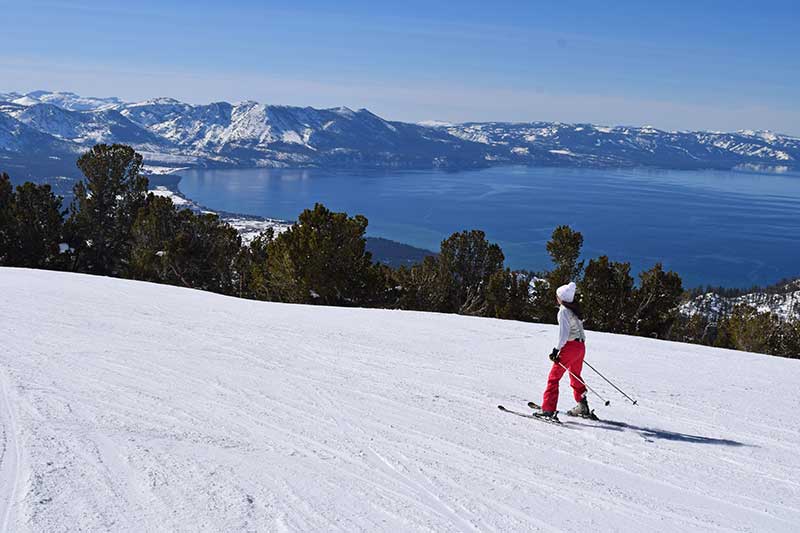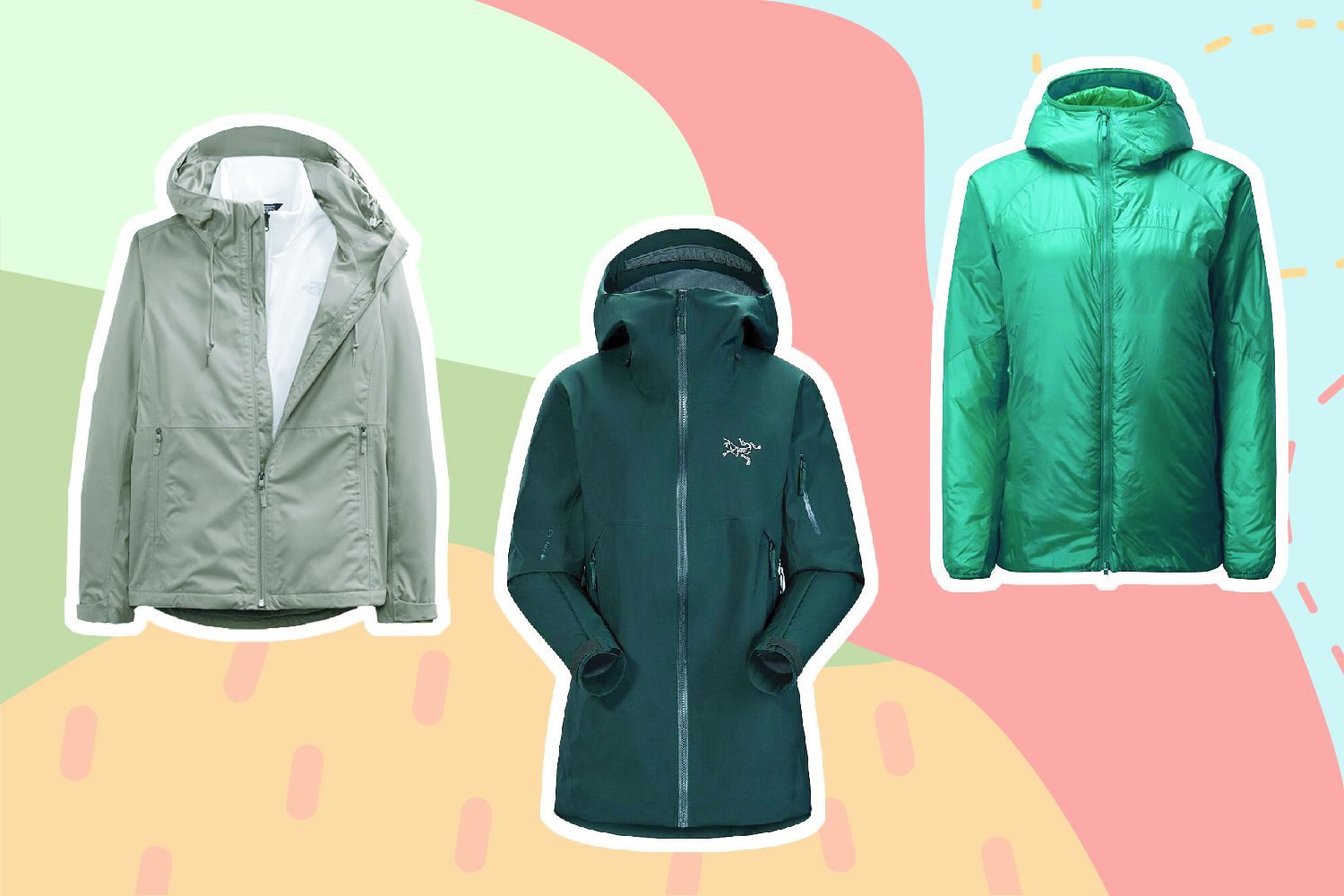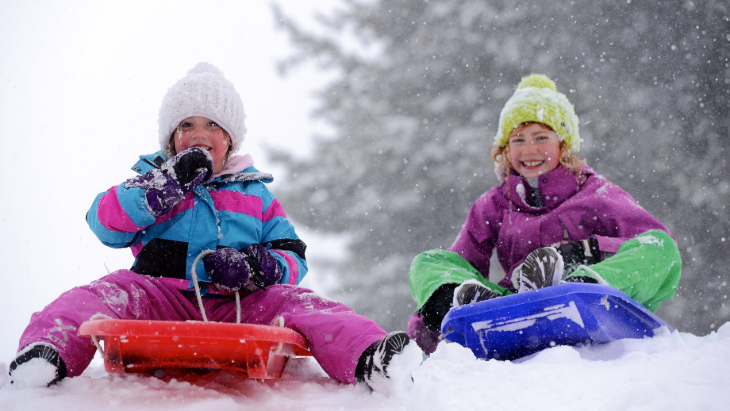
Ski jackets are essential winter gear. It should be able to withstand beaming sunshine, bitter wind, wet snowflakes, and slashing hail. The best down ski jacket will keep you warm, dry, and safe on your next ski trip.
Spring Ski Jackets for Snow and Sun
The best spring jacket is durable and waterproof. You want it to be light enough to pack into your bag and take with you on short hikes or to the grocery store before you go back out on the slopes.
The Most Comfortable Ski Jackets For Cold Weather
The most comfortable ski jacket for cold weather will have features such as an adjustable hood and multiple zippered pockets, including one in the chest to fit a helmet. The base layer will likely be built-in so that it can be worn underneath a light fleece to add warmth.

Most Waterproof Ski Hoods for Snow and Rain
The best waterproof ski jackets can withstand harsh conditions on the slopes. They can be used to get on and off of the lift, as well as hiking uphill and riding on deep powdered skin tracks. The outer shell should be made from a "D" fabric with a denier (or "D") fabric that can withstand abrasions and moderate rain for approximately 30 minutes before the membrane tears.
A jacket made from synthetic insulation is a good choice if you are planning to ski in a wet area. Although they can be heavier than down jackets and bulkier, these jackets will perform well when it's rainy. They also dry faster than down insulation. This means that you can keep them on longer and prevent hypothermia.
Most Ski Jackets With Synthetic Insulation
Synthetic insulation is the most popular type of insulation in ski jackets. It is cheaper than down and still retains its insulation properties even when wet. These jackets are lighter than down insulation jackets and they don't tend tangle when they get wet.
Most Comfortable Jackets for Skiing
A ski jacket designed to be durable and light for intermediate-level skiers is the best. It should fit comfortably and provide plenty of pockets.

Most Comfortable Jackets for Backcountry and Cross-Country Skiing
Lightweight, breathable, comfortable and breathable ski jackets are ideal for cross-country or backcountry skiing. They also have plenty of storage, including a ski pass and goggles pocket, and are compatible with RFID passes and electronic gates.
FAQ
How long does it take for you to fly between countries?
The time taken to fly varies depending on the distance between the airports and the weather conditions.
It takes approximately 3 hours to fly.
The actual flying time will depend on several factors including the airline, the aircraft type and delays at the airport as well as weather conditions.
How much luggage do I need?
The length of your trip will determine how much luggage you need. Hand baggage is usually limited to 20 kg if you travel by plane. However, if you are taking a train or bus, then you will need more space.
A form will be provided to you when you arrive at the airport with information about your flight. This will include information like the weight of your bag and whether you need assistance in checking them in.
You should always check this before leaving home. If you don't, then you could find yourself waiting around for hours while everyone else checks their luggage.
Because you never know what could happen, it is better to travel light. It is possible to lose your bag and not have something to wear.
Which is the best place to purchase airline tickets at a low price?
You might want to look at airlines such as Jetstar, Virgin Australia and Tigerair for the best airfares.
Some airlines offer discounts on flights if you search online.
What documents should I keep handy when traveling?
You can always access important documents while you are on the road by keeping copies at home. Also, keep copies of your passport, driver’s licence, and other identification cards, along with any credit card information, in case you need them, to make it easy to access when you travel.
A photocopy is always a good idea. This can be used to verify your identity, if necessary.
Don't forget to attach copies of your itinerary or reservations. These will help you to remember where you are and what you want to see.
This should be in addition to the original flight ticket and hotel reservation details. You'll be able contact someone back home in case you need them.
Finally, it's always a good idea not to leave anything valuable unattended. Keep your valuables safe by storing them in a money belt or inside your luggage.
To avoid costly items being lost, make sure you check your luggage before you leave.
Keep in mind: It is safer to keep it simple than to plan everything.
Enjoy the ride and just relax.
What cheap accommodations are available when traveling abroad?
Hostels, hotels, guesthouses, and bed and breakfasts are all options for cheap accommodation.
Hostels come at a low cost and offer rooms in dormitory-style accommodation where guests share bathrooms with one another.
Hotels are typically located in tourist areas.
Guesthouses are similar to hostels, except they often have larger rooms and fewer people sharing each room.
These bed & breakfasts are very popular with budget-conscious travellers. A guest stays in a private home and is provided with a full morning breakfast.
Do you ever worry about forgetting something when you travel?
Yes, I often forget stuff. This happens most often when I'm on a brief trip. Luckily, I always have everything I need with me so I never run out.
For example, my passport is always with me. I also make sure to have enough money for any purchase of tickets.
My phone charger is always with me. And I use a small bag to store other items.
What should I do if I want to buy travel insurance
Travel insurance is important if your plans include adventure travel. You should ensure that you have coverage for all types and forms of adventure sports.
For example, if you are skiing, you should ensure that you have medical coverage. You should also think about getting coverage for theft loss and damage.
You should also consider buying cover for cancellation. This covers you from any possible penalties if you cancel your holiday.
Also, make sure you ask for insurance for emergency evacuation. This covers being evacuated off the mountain in an emergency such as an avalanche.
Statistics
- Alcoholic beverages with 24% alcohol or less are not subject to limitations in checked bags. (tsa.gov)
- Pack sweaters, jackets, and underwear in reusable compression bags creating up to 75% more space in your luggage. (wikihow.com)
- That's an 18% jump from 2019, the previous record year. (travelandleisure.com)
- According to Maori legends, this park holds 14 fjords that were all carved by a giant stonemason with an adze. (busytourist.com)
- They're also likely to offer babysitting services, in case you'd like to have dinner one night after 7 p.m. (travelandleisure.com)
External Links
How To
What are your top travel tips?
Traveling is an exciting experience, but there are many pitfalls you need to avoid if you want to have a safe and enjoyable trip.
These are some general tips that will help you plan your next vacation.
-
Book early. The prices will be lower if you book early. Last-minute deals by airlines and hotels can also be saved money.
-
Stay-at-budget accommodations. Cheap hotels are more affordable. They're usually located near public transportation and shopping centers.
-
Don't overpack. Don't overpack. Allow for souvenirs, gifts, and luggage. Take clothes that fit well.
-
Be sensible. Be careful if you're on your own. Avoid areas with high crime and insecure neighborhoods.
-
Protect your valuables from theft. Keep valuables locked away from sight. You should never leave anything valuable at home when you go swimming.
-
Take extra care when handling cash. Thieves often target tourists in foreign cities. Keep your money out of view and use ATMs inside banks or guarded facilities.
-
You should know where you are. Be sure to learn how to use public transport in order not only do you need to book a hotel but also how to get there. Find out about tourist attractions, restaurants, and other sights.
-
Make sure you are safe. Before you travel, learn about the culture, laws, and customs of your destination.
-
Have fun. Have fun, regardless of what happens. It's worth it.